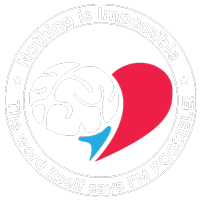Hypnosis and False Memories
Have you ever heard of false memories?
It is a phenomenon of the mind which can occur more spontaneously in hypnosis than in conscious awareness.
Today I will share with you the rule, one and only, to avoid false memories from occurring in hypnotherapy.
Hello and welcome to Doorway To Freedom. My name is Penelope and I’m a hypno-psychotherapist.
Today I would like to share with you about hypnosis and false memories.
This is a very controversial topic because back in the 1960’s and 70’s hypnosis went through a renewed interest, especially by psychiatrists and psychologists.
What happened though is that up until then there hadn’t been much research done about hypnosis and its phenomenon, and by having more and more people in treatment with hypnosis, at some stage it was realized that a person in hypnosis can create totally false memories. And the way it was realized was that, some people after having come up with some memories of abuse by a family member, all kinds of abuse, they would have been encouraged to go and report the family member to the police.
And so the people would have done that, but then the family members would have strongly denied that such a thing would have ever happened. The kind of abuse that we are talking about here is that kind of abuse that would have been going on and on in the family and therefore, if it really had happened, someone would have known about it and not everyone would have denied all the time and for so many people.
And so some research was started and the research came to the conclusion that a person in hypnosis can create false memories. But the problem was not just the creation of false memories, the problem was that once the person was out of hypnosis, actually believed totally the memories that were not true, so much so that they would have gone on and reported the family member.
So why does this phenomenon happens? This phenomenon happens because the unconscious mind, as I said before is a vast library that has stored in it every single experience that we go through since birth and until death, every single bit of info information is in there.
However, the way the information is stored is not in a logical way. It is stored like, by category. So we could have a bit of information that is not a real experience, as in, it is a real experience but it’s not of a real image, being mixed with a bit of information that is an actual life experience. For example, if I say to my client, imagine a carrot, visualize a carrot, now what they visualize could be made of a 60% memory of a real carrot and 40% of a toy carrot or a carrot that they’ve seen in a children’s book, a memory of when they were maybe very small.
So we don’t actually know how much of a memory is actually real and how much is not of a real, I want to say of a real experience, but of course, even the image, the part of the image of the carrot that is not an actual carrot, a vegetable, would be still a real experience of the person, of the toddler or the baby seeing the carrot drawn in the book, but obviously that drawing is not a real carrot.
So the unconscious mind puts things together and memories together like that. And the function of putting things together is not so much of having a real memory, but it’s just recreating certain emotions that serve a purpose. And that is, the purpose of resolution of a problem. So normally the fact that in hypnosis we can create memories that we don’t really know how much they are real is not a problem, but you understand that when we go through cases of trauma we therapists need to be aware, and careful to do it in a way that we minimize false memories.
There is one simple rule that a therapist has to follow in that respect, and it is only right that you also know it, because if you were ever to go to treatment with a hypnotherapist, at least, you know that your therapist is doing the right thing.
And that rule is that the therapist should only ever ask open questions, because if a therapist asks closed questions, the mind, the unconscious mind, that is likely to agree with the therapist who is an authority figure, the person is going to believe what the therapist is suggesting.
For example, if I the client comes up with a memory of being four years old, six years old, 10, even 15 and they say to me, I’m out playing football, and I ask them, ‘Are you playing with someone?’ and they say, ‘Yes, I’m playing with my brother’ – now I have asked an open question. ‘Are you playing with someone?’ I haven’t given a suggestion of who they’re playing with. So that’s perfectly fine.
But if I was to say to my client ‘…and are you playing with your brother?’ They are likely to say to me ‘Yes, I am playing with my brother’. If I said, ‘Are you playing with your cousin?’ They’re likely to agree with me and say ‘Yes, I’m playing with my cousin’, whereas in reality, they were probably playing maybe with their dad or with just a friend; so I have, like instilled a suggestion in their mind of who they were playing with, that they were playing with someone they actually weren’t playing with, and that is not good.
So for you to know that you’re sitting in the right clinic you just need to be aware of this very important rule. And I will explain in other videos that when you are in hypnosis you’re not unconscious, you know exactly what’s going on, you’re actually interacting with your therapist.
So you will be aware about what your therapist is doing, whether they are doing a good job with you, just remember that they should only ever ask open questions, and so if you have the feeling that you’re been led through memories, as opposed to be guided through your memories, now that you are aware of it, an alarm bell will go off in your mind and you will know exactly that what’s going on is not quite right. So then you can then make an informed decision of either asking for clarifications or simply just discontinue therapy.
So I hope you found this information useful. And if so, please leave any comments you may have here below.








Leave a Reply